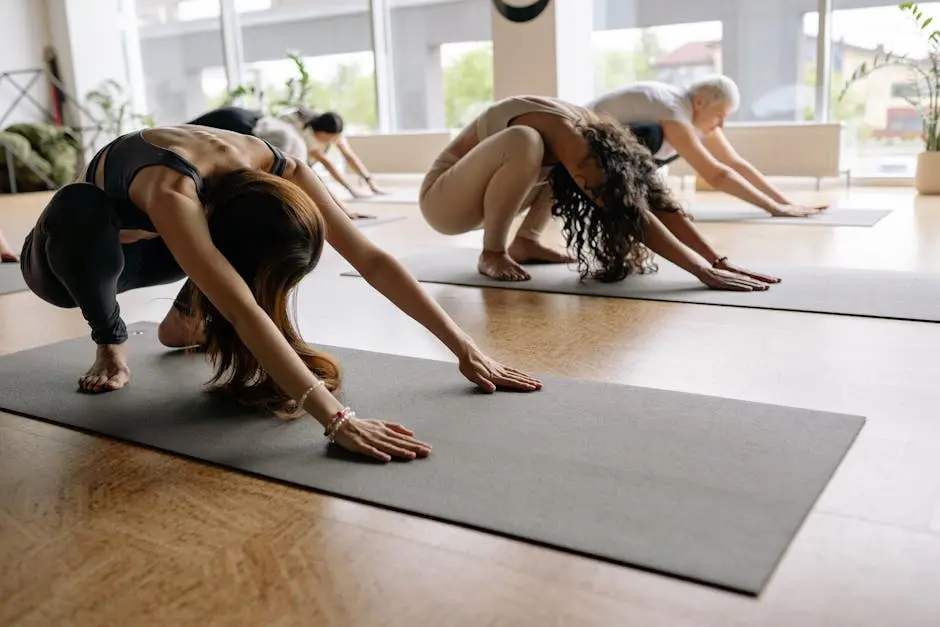7 Tips to Master Your Yoga Challenge
Starting a yoga challenge can be a transformative journey, offering both physical and mental rewards. Whether you're a seasoned yogi or a curious beginner, mastering your yoga challenge requires a mix of discipline, creativity, and self-compassion. Let's explore some practical tips to help you make the most of this experience.
1. Set Clear Intentions for Your Practice
Before diving into your yoga challenge, take some time to reflect on your intentions. What do you hope to achieve? Whether it's stress relief, increased flexibility, or inner peace, having clear goals will guide and motivate your practice.
To solidify your intentions, consider writing them down. Keeping a yoga journal can be particularly helpful as it not only reminds you of your purpose but also allows you to track your progress. Reflect upon your goals regularly and adjust them as needed to ensure that they continue to resonate with your evolving practice.
2. Create a Consistent Schedule
Consistency is key in any challenge. Set aside specific times each day for your yoga practice. Whether it's morning, noon, or evening, find a schedule that works for you and stick to it to build a sustainable routine.
Combining yoga with elements like mindfulness can make a consistent practice more manageable and enjoyable. Try starting each session with a short meditation to center yourself and create an intention for the practice. Consider using techniques like mindful breathing to enhance your routine.
3. Find the Right Yoga Style for You
Yoga comes in many styles, from vigorous Vinyasa to calming Yin. Experimenting with different styles can keep your practice exciting and help you find the one that best suits your needs and goals.
While exploring various yoga styles, think about your mood and energy levels. On a high-energy day, a dynamic Ashtanga class might be invigorating, whereas a gentle Restorative Yoga session could be perfect when you're seeking calm.
4. Focus on Breath and Alignment
Proper breathing and alignment are foundational to yoga. Pay attention to your breath and body positioning in each pose. This awareness not only enhances physical benefits but also deepens your mind-body connection.
To deepen your understanding, consider attending a workshop on anatomy or pose alignment. Understanding how breath and posture intersect can significantly transform your practice, making it both safer and more effective.
5. Incorporate Mindfulness into Your Routine
Mindfulness is a powerful aspect of yoga that can enrich your experience. As you move through your poses, bring attention to your thoughts and sensations, practicing present-moment awareness without judgment.
Start by incorporating short mindfulness exercises into your daily routine. Simple practices like a body scan can build awareness and enhance your overall yoga experience, helping you stay present on and off the mat.
6. Modify When Necessary
Every body is different, and what's challenging for one person might be easy for another. Listen to your body and don't hesitate to modify poses to suit your flexibility, strength, and comfort levels.
Using props such as blocks, straps, and bolsters can make poses more accessible. They aren't just for beginners—many experienced yogis use them to deepen or sustain longer postures in a safe environment. Always remember, it's your practice and embracing adaptions can lead to a more fulfilling and safe experience.
7. Celebrate Your Progress
Yoga is a personal journey, and celebrating small victories boosts motivation and joy. Whether it's holding a pose longer or achieving a challenging position, acknowledge your progress and enjoy your achievements.
Consider sharing your accomplishments with your yoga community, whether it's online or in-person classes. Celebrating milestones can be motivating and uplifting, fostering not only individual growth but also connecting with others who are on similar journeys.

